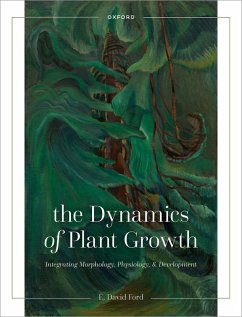Answers to practical questions about plant growth are sought with increasing urgency. Climate change is affecting the stability of vegetation, the yield of many important crops, and there is a continual need for ever more productive varieties to feed a growing global population. Answering questions posed by these problems requires a more integrated understanding of how plants function in producing growth. This book shows how this understanding can be achieved. First and foremost, plant growth must be defined as a dynamic system with developmental, morphological, and physiological processes responding to fluctuations in the environment due to weather, changes in the architecture of the plant as it grows, and the effects of plants on their environment: connecting these processes in a complete system is the essential integration. Part I shows, for contrasting plant types, that developmental, morphological, and physiological processes must all be considered to explain differences in growth and survival; Part II defines the types of control processes occurring in plants and their different functions; Part III illustrates the importance of plant morphology in controlling growth; Part IV how, and to what extent, the effects of environmental factors are controlled by plant processes particularly as plants grow in size. A final chapter defines how a theory for growth of a particular plant must be based on its characteristics as a dynamic system.
Dieser Download kann aus rechtlichen Gründen nur mit Rechnungsadresse in A, B, BG, CY, CZ, D, DK, EW, E, FIN, F, GR, HR, H, IRL, I, LT, L, LR, M, NL, PL, P, R, S, SLO, SK ausgeliefert werden.









